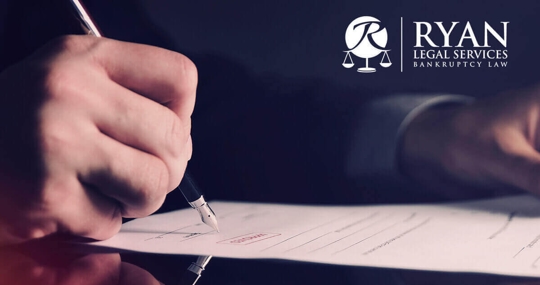We often speak to potential clients about whether debt settlement would be an option that is better than bankruptcy. Although every person’s situation is unique in some way, there are some common questions that arise during these conversations.
The most common question in connection with debt settlement is “ should I cash in my 401(k) to settle my debts.” In most cases, this is not a good idea. When you cash in a 401(k) account, the Internal Revenue Service will impose a 10% penalty for an early withdrawal ( before age 59). The withdrawal from the account is considered income for the tax year of the withdrawal.
When a debt is settled, the creditor will “write off” the claim. This means that the creditor will report to the Internal Revenue Service that the claim is not collectable. The debtor will then be issued a 1099 which is also filed with the IRS.
After being assessed the 10% early withdrawal penalty, and after taking on additional taxable income, the amount of the debt written off by the creditor is also added to the income of the Debtor. This ‘triple whammy” is what makes the 401(k) early withdrawal a bad strategy to pay off debt.
A bankruptcy discharge, in contrast, is a tax free event. If you receive a 1099 from a creditor for a discharged debt, the debtor need only file an IRS Form 982 with the Internal Revenue Service which informs them that the debt was discharged in bankruptcy and is therefore not to be considered taxable income.
Another negative aspect of debt settlement is the effect it has on your credit report. When a debt is settled for less than what is owed, the write-off will be reported on your credit report as a negative event, for up to seven ( 7 ) years.
Sometimes when a person attempts to settle a debt with a collection agency or a debt buyer, the other party will accept funds to settle the account and then sell the contract off to another debt buyer or collection firm. This can happen where the debtor fails to get a proper written release of the contract. Even though the settlement funds are applied to the contract, the creditor can apply them to items listed in the small print of the agreement ( collection fees, costs, interest, penalties, etc) which leave a balance under the terms of the agreement. This balance post settlement is what can be later sold off, letting yet another collector or debt buyer collect or sue on the account.
It is important when considering settlement of debts to keep in mind that you are in all cases dealing with written contracts. Even though a debt collector represents to you on the phone that the debt will be erased upon payment of a negotiated amount, you must still be ever conscious to obtain a legally enforceable release of that contract by the creditor. Does the creditor’s representative even have authority to bind the creditor to a release, or does the representative have only the authority to collect whatever he or she can on the contract, keeping it alive and earning interest, penalties etc into the future.
There are several debt settlement firms who advertise on television, radio and internet. Most often, a debt settlement “plan” will involve the debtor making monthly payments into an account with the settlement company. After passage of time, the account builds enough equity in it where the settlement company can make an offer to a particular creditor to settle the debt for less than what is owed. These plans, however, are often unsuccessful in the case of multiple creditors and a high aggregate amount of debt.
In simple terms, the debtor cannot build up the settlement fund fast enough to satisfy all of the creditors in the pool. Eventually, one creditor or more will decide that taking legal action would be a faster means of getting paid. There is nothing stopping any of the creditors from taking this action. The only way to stop all of the creditors from taking outside legal action is to file a bankruptcy case, where the debtor will obtain an “Automatic Stay” Order the minute the case is filed. The automatic stay order is a restraining order issued against creditors that prohibits them from continuing collection activity on the accounts.
It is always a good idea to consult with a bankruptcy attorney even if you feel that you would not choose to file a bankruptcy case at the outset. Bankruptcy can provide a slew of financial benefits while at the same time allowing you to keep most if not all of your property
( including home, vehicles and retirement accounts)

